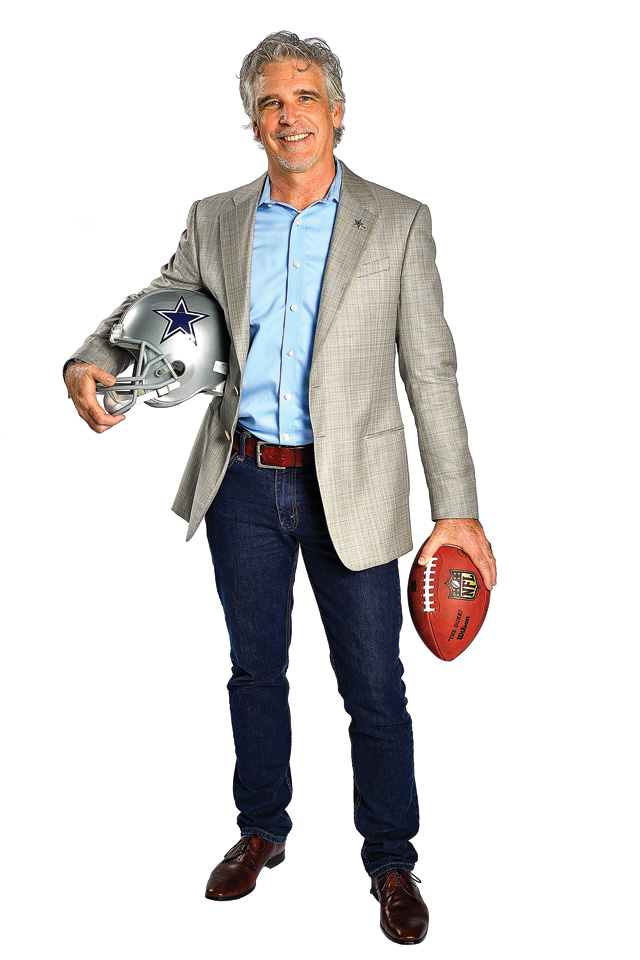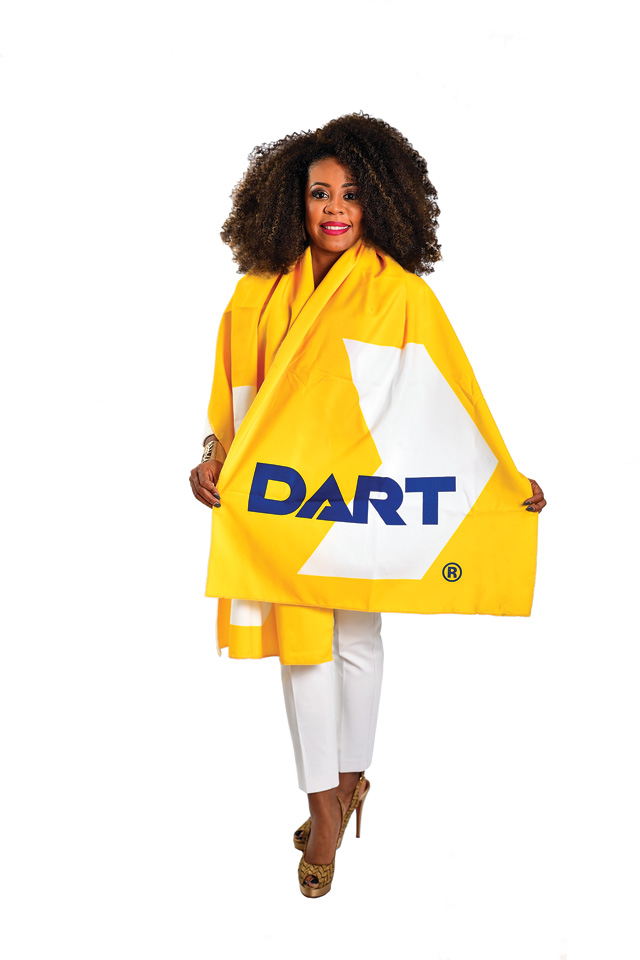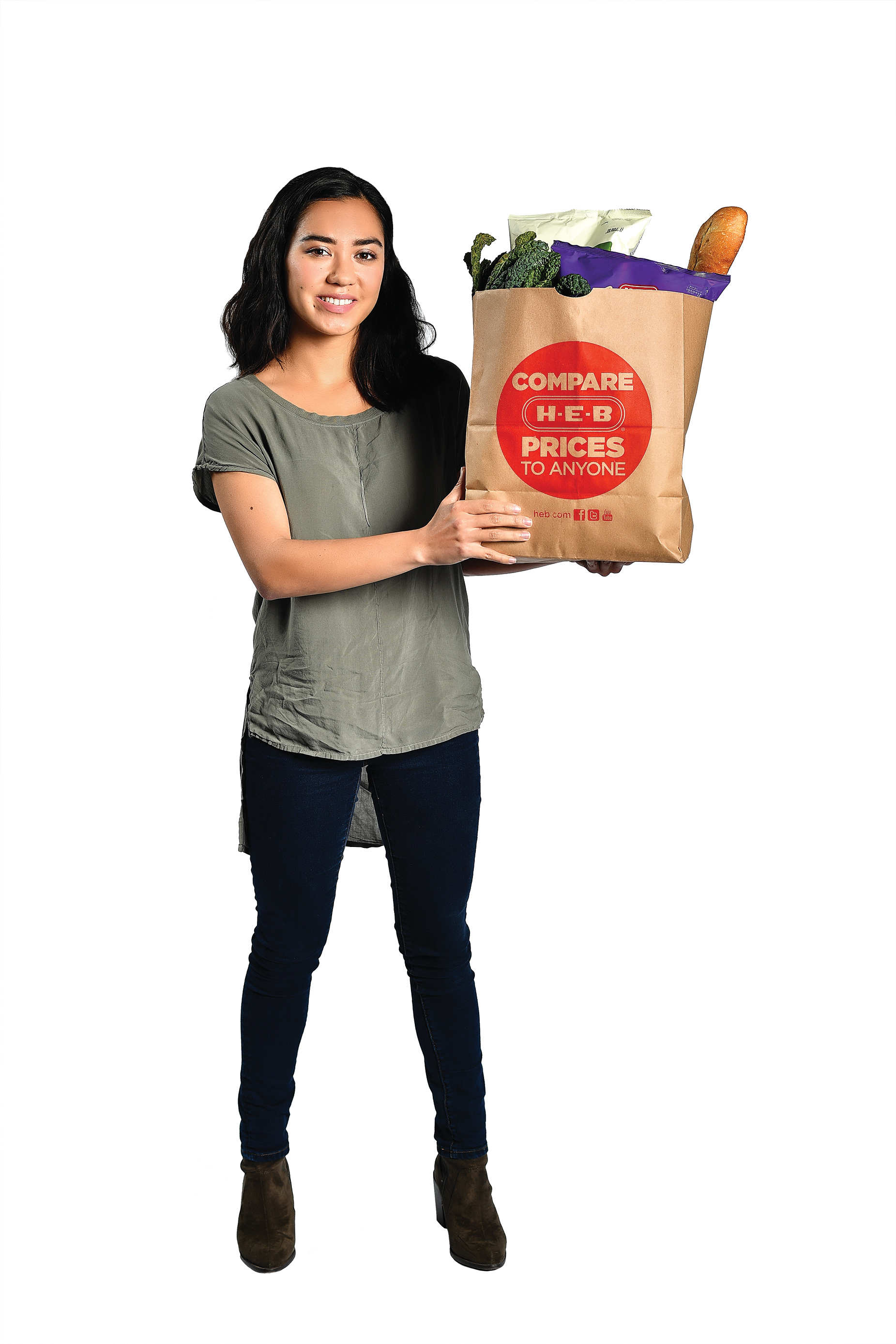
Running back Ezekiel Elliott was chosen, and then the work began. Burkhart, the Cowboys' merchandising chief operating officer, led his team of employees to create and print the jersey with Elliott's name to sell online and at Dallas Cowboys Pro Shops the next morning.
Burkhart oversees accounting, IT, e-commerce, the screen print production facility, and warehouse, retail and customer service operations for the merchandise of the Dallas Cowboys. It is the only National Football League team that designs and manufactures its own apparel, giving it an advantage to quickly create items -- such as Elliott's jersey on draft day.
When the team chose to develop its own merchandising business, it was another decision -- along with playing every Thanksgiving and building AT&T Stadium in Arlington -- that made it one of the sporting world's most popular brands.
"The Dallas Cowboys brand is one that has evolved over many years," Burkhart says. "Winning certainly helps. But along the way the organization has remained true to some basic principles regarding innovation, tradition, entertainment, passion, competition, business, excellence, integrity, community and teamwork. All of these actions have contributed to creating a unique relationship with the true owners of our brand, the Dallas Cowboys fans."
Many UNT graduates are working behind the scenes for major corporations, tasked with getting consumers to transform their habits and spending power to become loyal brand followers. Scott White ('77) has landed appearances on Fox Business News and Undercover Boss for his clients. Telea Stafford ('03 M.B.A.) has helped develop campaigns for match.com, DART and Dr Pepper. Shelby Tamura ('15) contributed ideas for an H-E-B commercial during the recent Super Bowl. And Remy Smit ('13 M.B.A.) developed ads for Miller Lite beer based on an idea from his native country -- the Netherlands.
The work of these alumni is to build emotional connections with brands so consumers become loyal and engaged, says Francisco Guzmán, UNT associate professor of marketing and logistics.
He points out that the role of brands has changed drastically in the last 25 years, as technology is demanding product excellence in order to survive in the marketplace among consumers who can instantly offer feedback. Also similar products compete among one another -- such as the iPhone and Samsung Galaxy, Walmart and Target, and Lowe's and The Home Depot. The challenge for businesses is to sell an image consumers can look up to.
"In this advanced technological world, we are looking for experiences," Guzmán says. "We're not satisfied with just a good product. We want a product that helps tell who we are."
He points out that the role of brands has changed drastically in the last 25 years, as technology is demanding product excellence in order to survive in the marketplace among consumers who can instantly offer feedback. Also similar products compete among one another — such as the iPhone and Samsung Galaxy, Walmart and Target, and Lowe's and The Home Depot. The challenge for businesses is to sell an image consumers can look up to.
"In this advanced technological world, we are looking for experiences," Guzmán says. "We're not satisfied with just a good product. We want a product that helps tell who we are."



